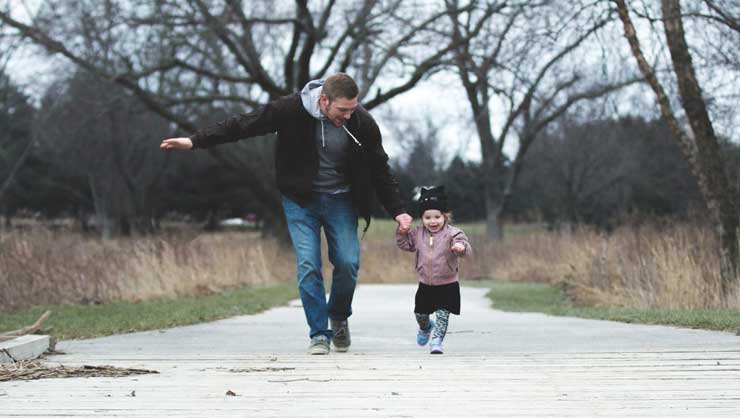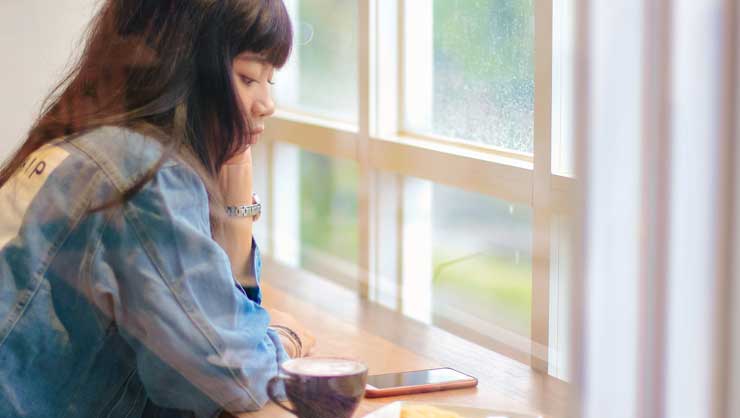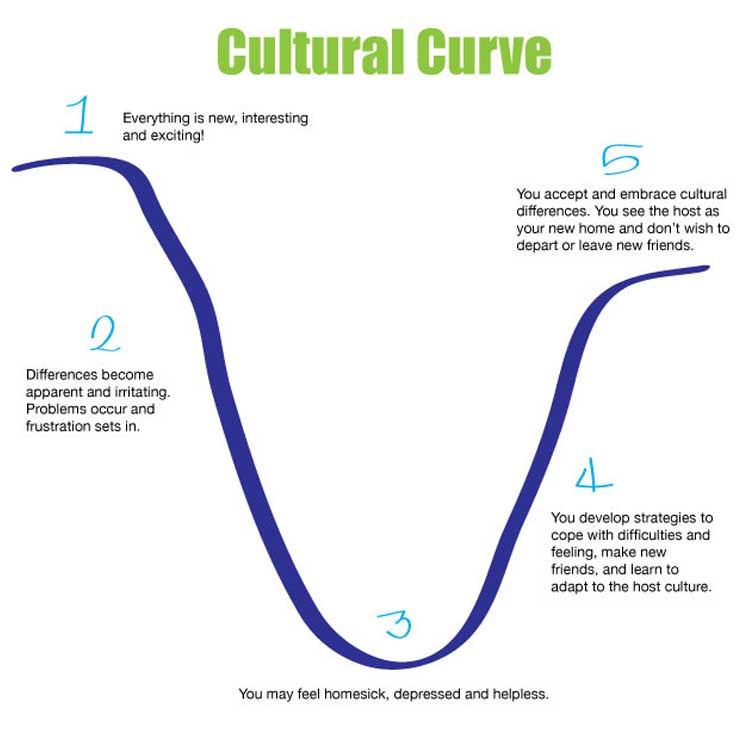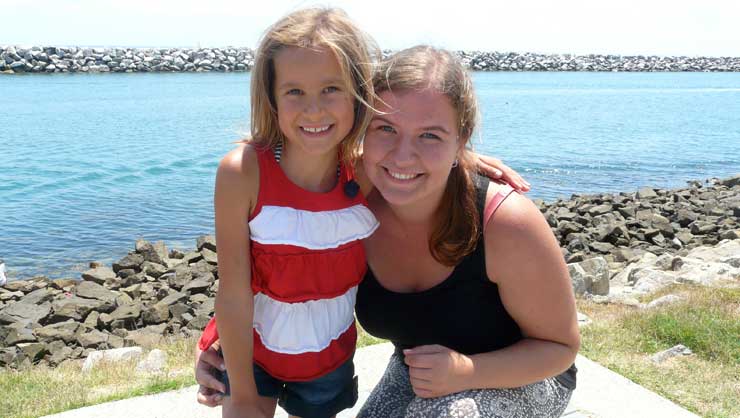Being an au pair is an exciting time and comes with ups and downs just like any other experience. Sometimes there is hesitation to talk about culture shock and homesickness. Au pairs and host families need to learn about these emotions and work together for everyone to make the most of their program year.
The First Week: Orientation

Image courtesy of Jill DeMarco
Orientation is an exciting, adrenaline-filled adventure for our au pairs! Many au pairs are setting foot in the U.S. for the first time. InterExchange au pairs arrive in New York City and stay in the middle of Manhattan. Orientation topics include first aid, life in the United States, living with a host family, and more. It’s a fun week, and au pairs’ enthusiasm is as bright as the lights in Times Square!
Phase 1: The Honeymoon Begins

Image courtesy of Pexels
Once orientation is over, the au pairs head to their host families’ homes. This first weekend is a great time for au pairs to get to know their new families, begin the cultural exchange that is so key in the au pair program, and learn about daily routines. The initial phase is truly exhilarating for au pairs and their host families, and this new life may appear absolutely flawless.
Phase 2: The Routine Sets In

Image courtesy of Pexels
A few weeks in, everyone has figured out the daily routine. Life has become “normal” once again, and au pairs have begun to notice the differences between cultures as they make friends and start taking classes. Some frustration and confusion can creep in as these cultural differences spring up and make daily life a little uncomfortable when compared to their home country.
Phase 3: Homesickness

Image courtesy of Pexels
After a few weeks, don’t be surprised if homesickness and culture shock enter the scene. It takes many forms – tears, anger, anxiety, oversleeping, or just a general sense of “blah.” The symptoms of homesickness vary for everyone and can last a few days or longer than a few weeks. Almost every au pair experiences homesickness to some degree. It’s part of being an au pair, so don’t worry about it!
If you’re experiencing culture shock, ask for help. Your Local Coordinator is a resource for you and would love to meet for coffee to talk. You can also ask your host family for assistance when times are difficult. Working together will lead to the cure.
This graph about the adaptation process to a new culture is a good example of the au pair and host family relationship too. Your experiences as a newcomer to any area or phase of your life will go up and down, like riding a wave.

Graph adapted from Northeastern University
Au pairs usually get through stages one and two in their first two months after arriving in the U.S. Month three often brings with it stage three, when you might encounter difficulties in the au pair and host family relationship. Always remember that you are not alone! We at InterExchange are here to help.
Phases 4 & 5: The Good Life!

Image courtesy of Interexchange
Stage four and five are Adjustment and Appreciation, a welcome relief after that challenging stage three.
By now, au pairs have developed a new hobby, traveled around this beautiful, diverse country, made friends and have even more to look forward to. Au pairs know where the cool local hangouts are and appreciate things about both U.S. culture and their home culture.
Don’t Go It Alone: Find Help With Homesickness!
Sometimes solving a problem by yourself is the best way to do it. Getting over homesickness is not one of those times. Au pairs should ask their host family or Local Coordinator for assistance and talk about their feelings. This will help ease the discomfort and frustration that stage 3 brings. Asking for help is one of the keys to a successful program year and we’re always here to provide guidance.
